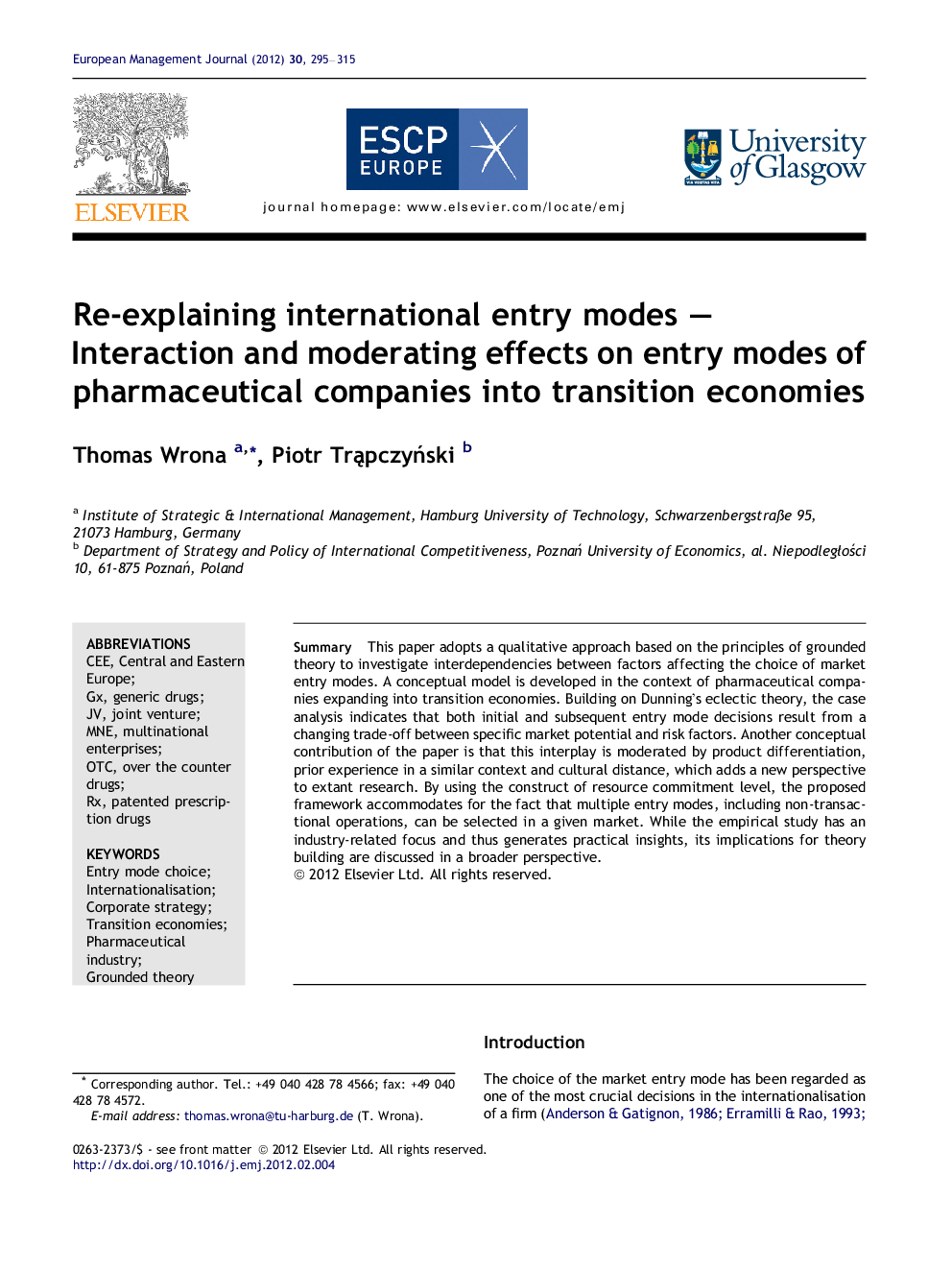| Article ID | Journal | Published Year | Pages | File Type |
|---|---|---|---|---|
| 1015018 | European Management Journal | 2012 | 21 Pages |
SummaryThis paper adopts a qualitative approach based on the principles of grounded theory to investigate interdependencies between factors affecting the choice of market entry modes. A conceptual model is developed in the context of pharmaceutical companies expanding into transition economies. Building on Dunning’s eclectic theory, the case analysis indicates that both initial and subsequent entry mode decisions result from a changing trade-off between specific market potential and risk factors. Another conceptual contribution of the paper is that this interplay is moderated by product differentiation, prior experience in a similar context and cultural distance, which adds a new perspective to extant research. By using the construct of resource commitment level, the proposed framework accommodates for the fact that multiple entry modes, including non-transactional operations, can be selected in a given market. While the empirical study has an industry-related focus and thus generates practical insights, its implications for theory building are discussed in a broader perspective.
► With our study we analyze the dynamic interplay between different factors of influence on international market entry. ► Evidence is provided that market entry decisions result from the perceived market potential-market risk ratio. ► The central result is that the market potential is balanced with the risk of market entry modes (potential-risk-trade-off). ► This trade-off is not deterministic but can strongly be moderated by firm specific variables. ► Subsequent changes of the operating mode were found to be explained by the same logic.
